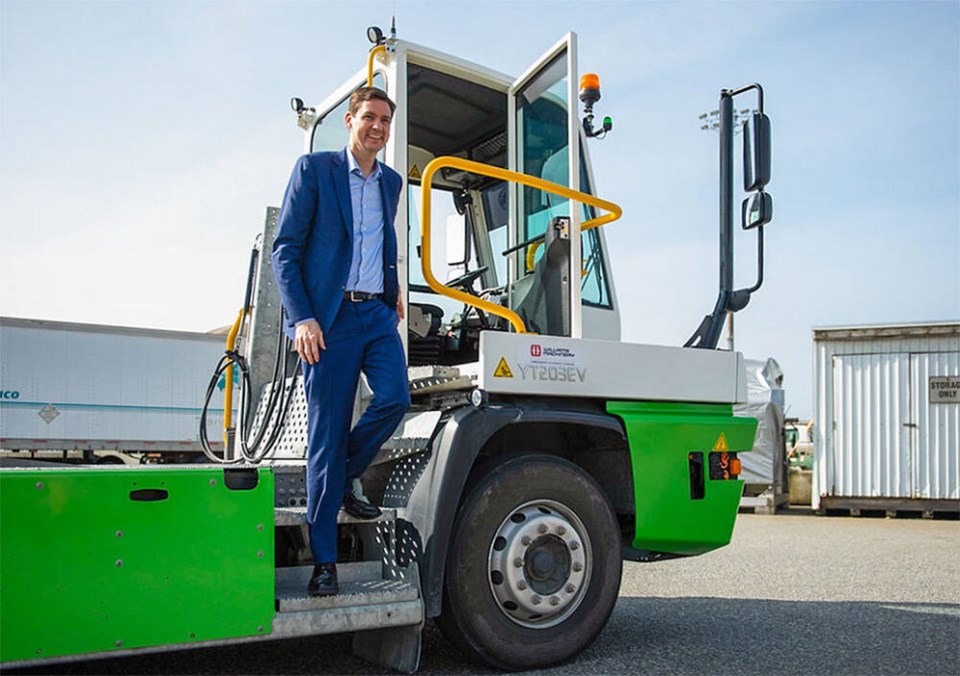Premier David Eby is in full support of the approval for the Vancouver Fraser Port Authority’s (VFPA) planned Roberts Bank Terminal 2 (RBT2) project.
During a news conference last Thursday (April 27) in Tilbury, a question on RBT2 was posed to the premier, who said supply chain snarls are evident, and economic development to alleviate the problem can be supported with environmental protections in place.
“I’m glad to see that the federal government has made a decision on the Roberts Bank (Terminal) two proposal. It will assist British Columbia, ensuring that we continue to have the critical role as the gateway to Asia, both for exports for British Columbia and across the country, but also for needed goods imported to British Columbia,” said Eby.
“I’ll be visiting Asia on a trade mission to go to Korea, Japan and Singapore to build those trade relationships, to meet with key people to help build and diversify our relationships. Part of that is ensuring we have the port capacity to be able to export those goods. And so, this expansion is going to make a significant difference in keeping costs down for British Columbians and creating economic opportunity for a long time.”
Built on a new man-made island adjacent to the current Deltaport container facility, RBT2 will provide a 50 per cent increase to the port’s container capacity, providing 2.4 million TEUs (20-foot-equivalent units) of additional capacity annually.
Describing the project as “good news” for the country, Jonathan Wilkinson, federal Minister of Natural Resources, said during the April 20th announcement, that since a review panel released its findings on the application, the proponent had worked with government to include additional measures to offset and mitigate potential environmental impacts.
Noting the construction jobs associated with the project and ongoing operational jobs will be significant, Eby said he spoke with members of the port authority who indicated enthusiasm in the port’s abilities to meet the lengthy list of conditions and, in fact, exceed them.
“They worked closely with Tsawwassen First Nation, with Musqueam First Nation, in ensuring that key pieces, like Dungeness crab habitat, like salmon habitat, like the biofilm that forms the base of the ecosystem in that area are protected,” Eby said.
“There’s safeguards in place. Certainly, there’s a lot of responsibility on them, British Columbians have very high standards around environmental protection. But we also understand our critical role as the gateway to the pacific and the need to recognize the false choice people often represent to us, that we have to either protect the environment or enjoy prosperity and development in our province, that we have to choose between those two, that we proved that that’s a false choice. And, the Roberts Bank development is an opportunity, once again, to demonstrate that we can ensure high environmental standards, but also that development benefits not just British Columbia but all of Canada.”




